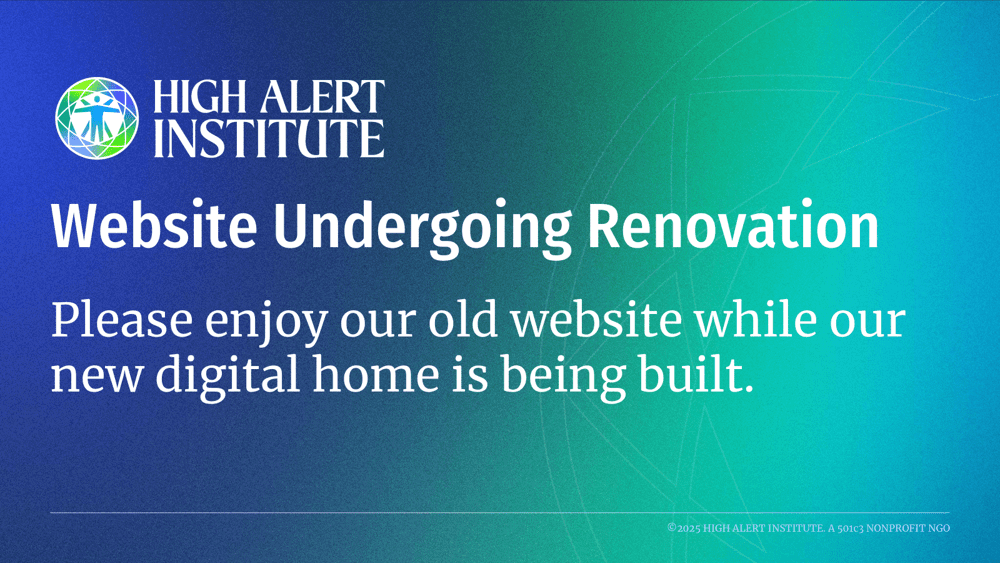High Alert Institute
Love: The Basic Building Block of Resilience

Father Robert Mitchell, a noted Catholic priest and philosopher, once wrote of the difference between “like” and “love.” Father Mitchell believes that “like” is an uncontrollable emotion, a reflexive response to our experience of another individual and the way we interact with them. According to Father Mitchell “liking” somebody or “disliking” them is as uncontrollable as the color of our eyes or the color of our hair.
“Love” on the other hand in Father Mitchell’s world is a choice, an active decision based on the type of relationship we choose to have with another individual. Father Mitchell states that while we may respect some individuals very often we will neither like nor love them. Similarly Father Mitchell believes that there are many people who we like intrinsically. Our experience of them and our interactions with them lead us to the inevitable response of genuinely liking these people, yet we choice not to love them. As Father Mitchell states it is nice if we like them as well but we can choose to love somebody, in other words care for them as an individual and more importantly care what happens to them, even without respecting or liking them as a person.
It is this final paradox, loving without liking, that Father Mitchell believes is the reason love is the ultimate “energizing” emotion. It is energizing because love is an active choice decision that we make to not only extend a relationship to someone else but to take control of ourselves and our lives. For Father Mitchell to love is the ultimate empowerment.
Another Catholic priest and philosopher, Father Dan Schulte, offered a functional definition of love:
“Love is a unifying response between two people who care for and have said ‘Yes’ to each others total being. It implies mutual respect, freedom and trust, and seeks the happiness and fulfillment of each other as a common goal.”
For love to be the basic building block of resilience it must not only be a choice as Father Mitchell has stated but it must also fulfill all of the basic tenants of Father Schulte’s definition.
“Love is a unifying response …”
In this phrase Father Schulte has encapsulates the most basic essence of the choice to love as well as its greatest hurdle. Love is a unifying response binding the person making the love decision to the person who is the recipient of that gift. It unites these two individuals creating something that is greater than the sum of its two parts.
“… who care for and have said ‘Yes’ to each other’s total being.”
Father Schulte echoes Father Mitchell’s sentiment that love here is a choice, a choice to accept ones partner in a relationship exactly as they are. No conditions, no qualifications, no equivocation.
It has been said that “no one self can see ones self through the eyes of another.” If this is true then Father Schulte’s definition holds that much more power as a building block of resilience. When we love another and enter into that “unifying” relationship we not only see ourselves as we are but find acceptance of ourselves as we are, not the way we wish we could be. It is through this acceptance that we can come first to respect ourselves then to like ourselves and finally we can make the active choice to love ourselves in the same way that we love others.
“It implies mutual respect, freedom and trust …”
Father Schulte emphasizes that the choice to love grows from the roots of respect. To love ourselves we must first respect ourselves. It is from this self-respect that Father Mitchell’s emotional response to like ourselves springs. Similarly, since if we are to love another person we must first respect them. That respect grows from absolute and unconditional acceptance. Once respect is manifest it demonstrates itself through trust. Trust like love is an active decision. Paraphrasing Father Mitchell, “we do not choose to like, that is an uncontrollable emotional response. But we do choose to trust (love).”
“… and seek the happiness and fulfillment of each other as a common goal.”
Finally, Father Schulte reminds us that the choice to love is an active ongoing and demonstrative choice. We manifest this choice to love through the goals that we have for the relationship. If our goals for the relationship are completely focused upon ourselves then the relationship may represent respect and even like but it is clearly not love. It does not contribute to our resilience.
If, on the other hand, our goal of the relationship is strictly to please another person and does not include ourselves actively within the relationship then again it may represent respect and even like but it is not love. It does not contribute to our resilience.
For a relationship to actively demonstrate love it must balance our own self-interests with our desire to be selfless. If love is unifying response and therefore the love relationship becomes a true individual a sum of the two people who choose to share the relationship the contribution of love as a basic building block of resilience is that by choosing to create this love relationship we choose to create a reservoir of resilience for two.
The four forms of resilience are all based on this simple emotion, love. Whether it is our physical resilience, our emotional resilience, our relationship resilience, or our spiritual resilience each requires that we make the active decision to love in order to build that resilience; to fill that canteen. Similarly, we thus fill our 40,000-gallon bathtub of resilience with this basic element of resilience, love.
High Alert Institute
4800 Ben Hill Trail
Lake Wales, FL 33898
Office: 863.696.8090
FAX: 407.434.0804
EIN: 27-5078437
Info@HighAlertInstitute.org
Privacy Policy
Cookie Policy
Terms of Use
Disclaimers
Get Your Data
Shipping Policy
Message Us
Transparency
Registrations
Do Not Sell Info
Return Policy
A COPY OF THE OFFICIAL REGISTRATION AND FINANCIAL INFORMATION MAY BE OBTAINED FROM THE DIVISION OF CONSUMER SERVICES BY CALLING TOLL-FREE, WITHIN THE STATE, 1-800-435-7352 (800-HELP-FLA), OR VISITING www.FloridaConsumerHelp.com. REGISTRATION DOES NOT IMPLY ENDORSEMENT, APPROVAL, OR RECOMMENDATION BY THE STATE. Florida Registration #CH68959
REGISTRATION WITH A STATE AGENCY DOES NOT CONSTITUTE OR IMPLY ENDORSEMENT, APPROVAL OR RECOMMENDATION BY THAT STATE.










